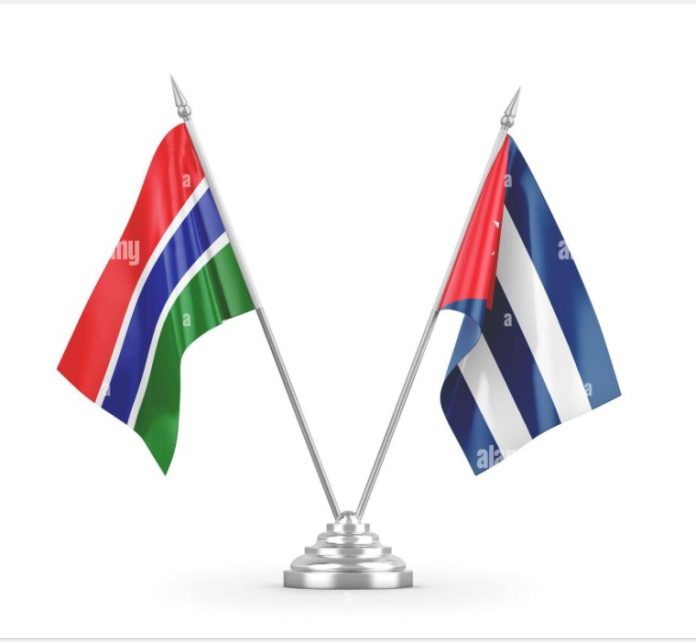By Mr. Lamin Sonko
In a remarkable celebration of enduring friendship and South-South cooperation, The Gambia and the Republic of Cuba have marked 46 years of unbroken diplomatic relations, a testimony to shared values of sovereignty, mutual respect, and solidarity.
This historic milestone, reached in 2025, is not merely a remembrance of political ties but a reaffirmation of common goals in healthcare, education, diplomacy, and international collaboration (Ministry of Foreign Affairs, The Gambia, 2025).
The establishment of diplomatic relations between Banjul and Havana on May 19, 1979, was a pivotal moment that laid the foundation for a resilient partnership grounded in mutual assistance. Since then, the two nations have consistently engaged in fruitful bilateral cooperation, especially in the fields of public health and human resource development of two sectors in which Cuba has consistently demonstrated global excellence. According to the Gambia Ministry of Health, over 150 Cuban medical personnel have served across The Gambia in the last two decades, with notable success in rural health delivery and surgical operations (Health Report, 2025).
As the 46th anniversary was commemorated in Banjul and Havana respectively, high-level diplomats, senior government officials, and friends of both nations paid glowing tribute to a relationship that has transcended political transitions and economic shifts.
The Gambia Foreign Minister, Hon. Dr Mamadou Tangara, commend Cuba’s unwavering support during times of national health emergencies and lauded the island nation’s commitment to medical diplomacy, an enduring pillar of its international engagement. “The Cuban brigade has not only healed wounds but built bridges,” he emphasized during a press conference at the Ministry’s headquarters.
The event was also a moment to reflect on the evolving dynamics of global diplomacy in an era increasingly shaped by multi-polarity. In this context, The Gambia and Cuba’s partnership continues to serve as a model for how smaller states can exert soft power through solidarity and shared development initiatives. From Havana’s contribution to training Gambian doctors and nurses, to Banjul’s consistent support for the UN General Assembly resolution against the US embargo on Cuba, the friendship has remained not only strategic but morally principled (UNGA Voting Records, 2025).
Furthermore, cultural diplomacy formed an integral part of this year’s commemorations. Cuban art exhibitions, Afro-Cuban music performances, and a film screening on “The Cuban-African Solidarity Legacy” were held at Alliance Française in Banjul, drawing audiences from academic circles, civil society, and the diplomatic corps.
The Ambassador of Cuba to The Gambia, Ambassador Rubén García Abelenda noted that “our cultures are different but our humanity is united,” highlighting the critical role of cultural exchange in diplomatic relations.
Looking ahead, both nations expressed a renewed commitment to deepen their cooperation under the frameworks of the African Union and the Community of Latin American and Caribbean States (CELAC).
Talks are also underway for a new educational exchange program that would enable Gambian students to study engineering and agriculture in Cuban institutions, further expanding the scope of bilateral engagement (Ministry of Higher Education, Banjul, 2025).
In an international system often dominated by power politics, the 46-year-old diplomatic bond between The Gambia and Cuba serves as a beacon of people-centered diplomacy as a powerful reminder that enduring friendships in the global arena are forged not only through treaties but through trust, values, and common cause.


















